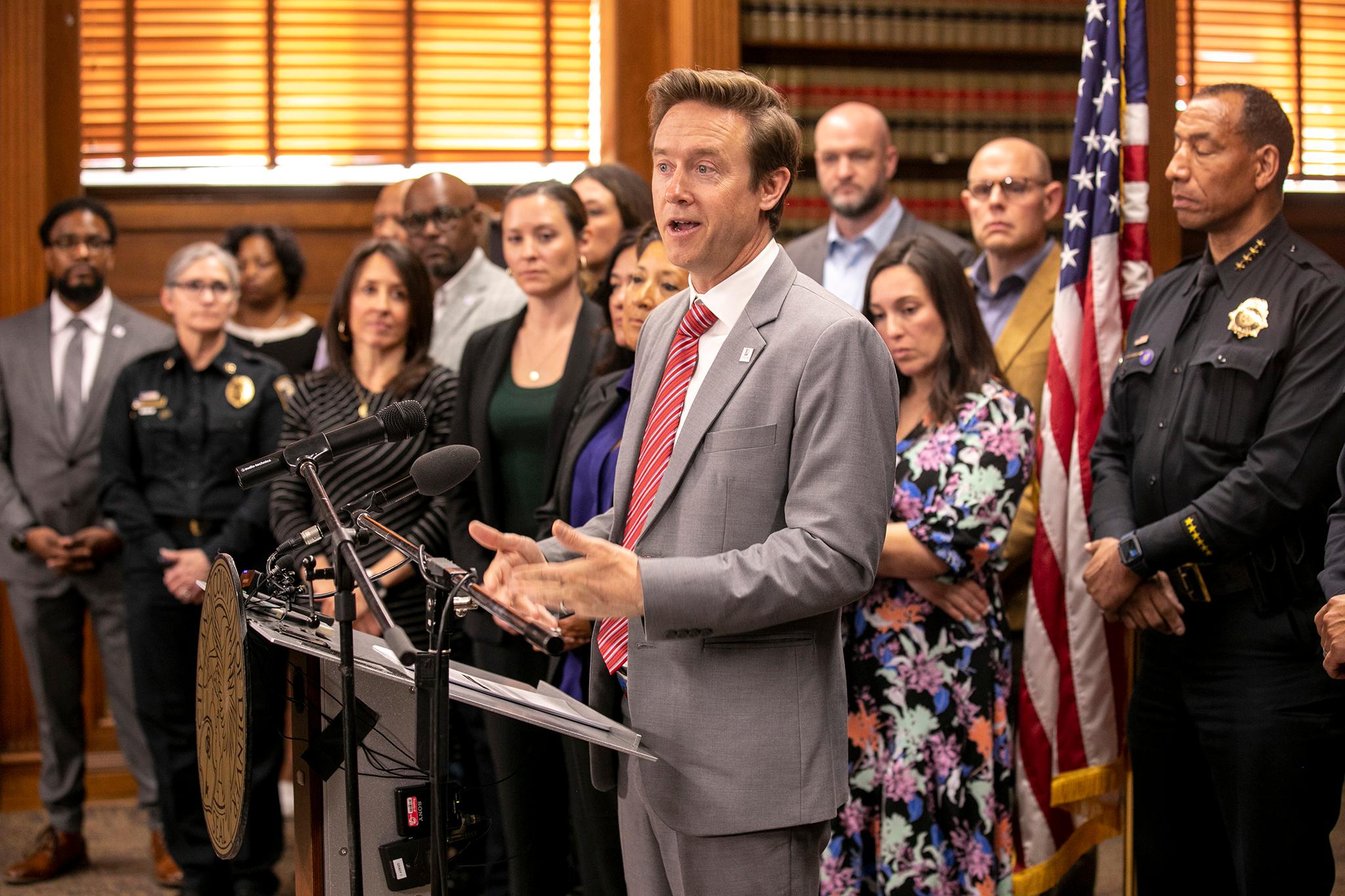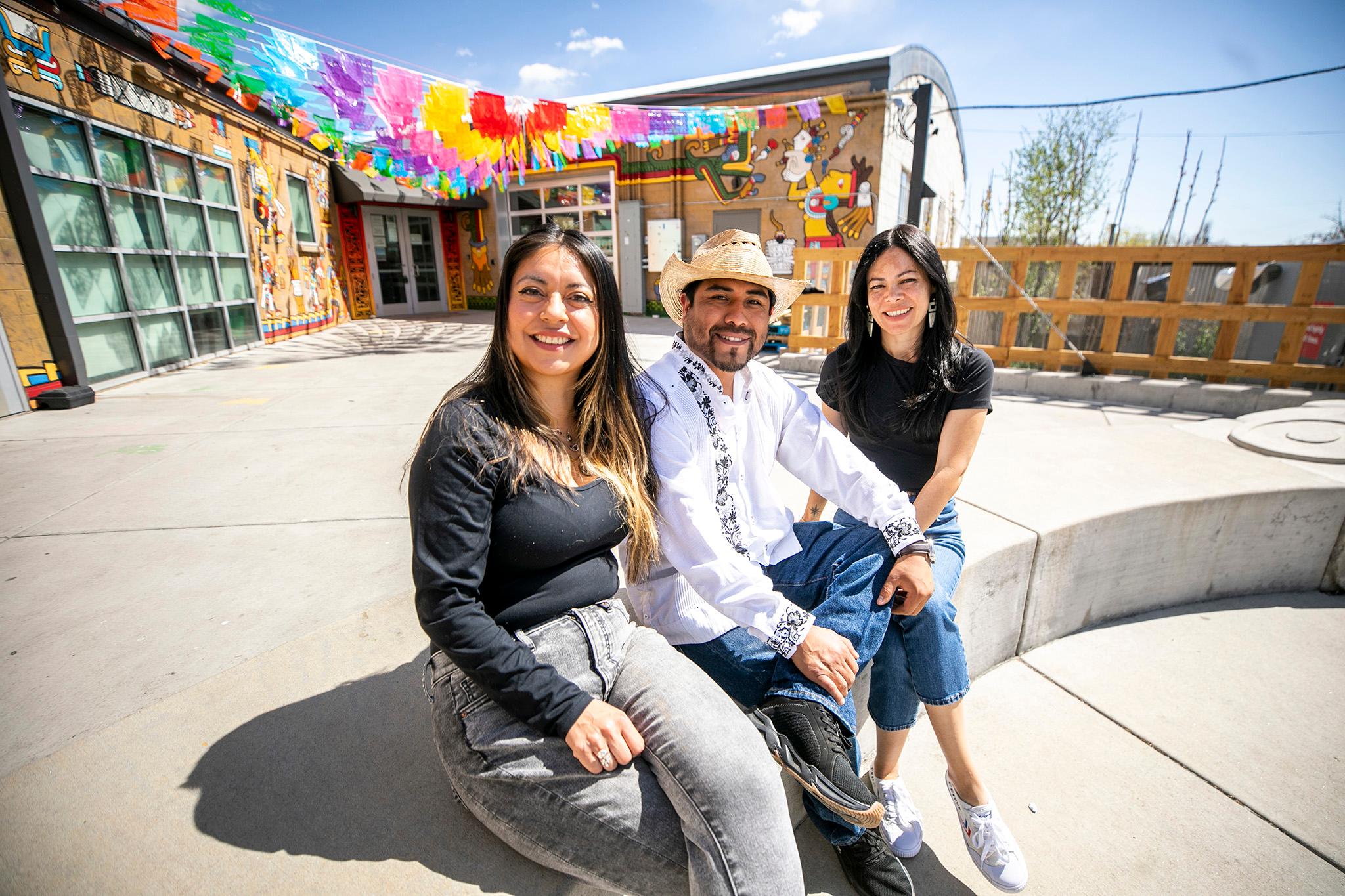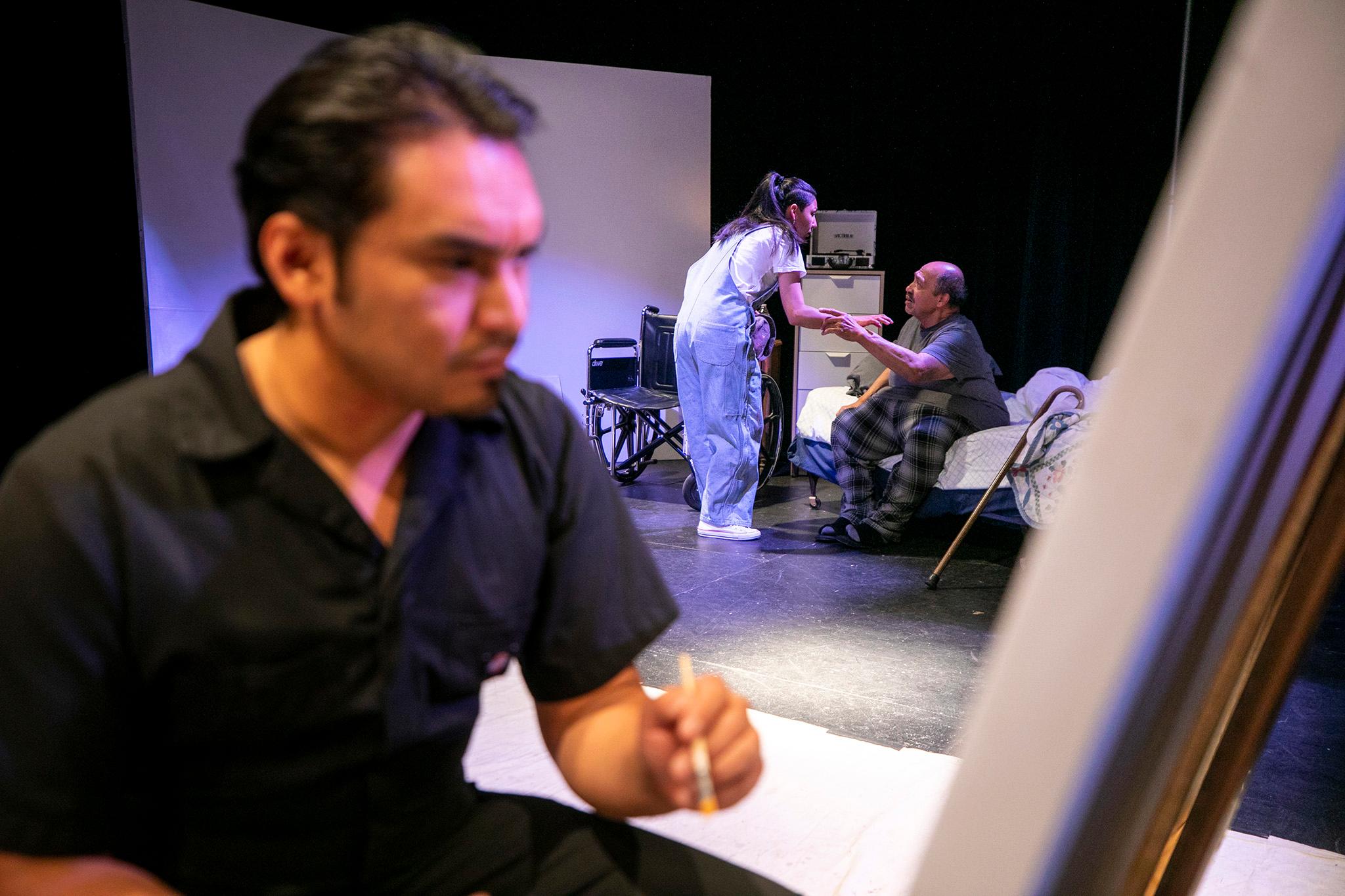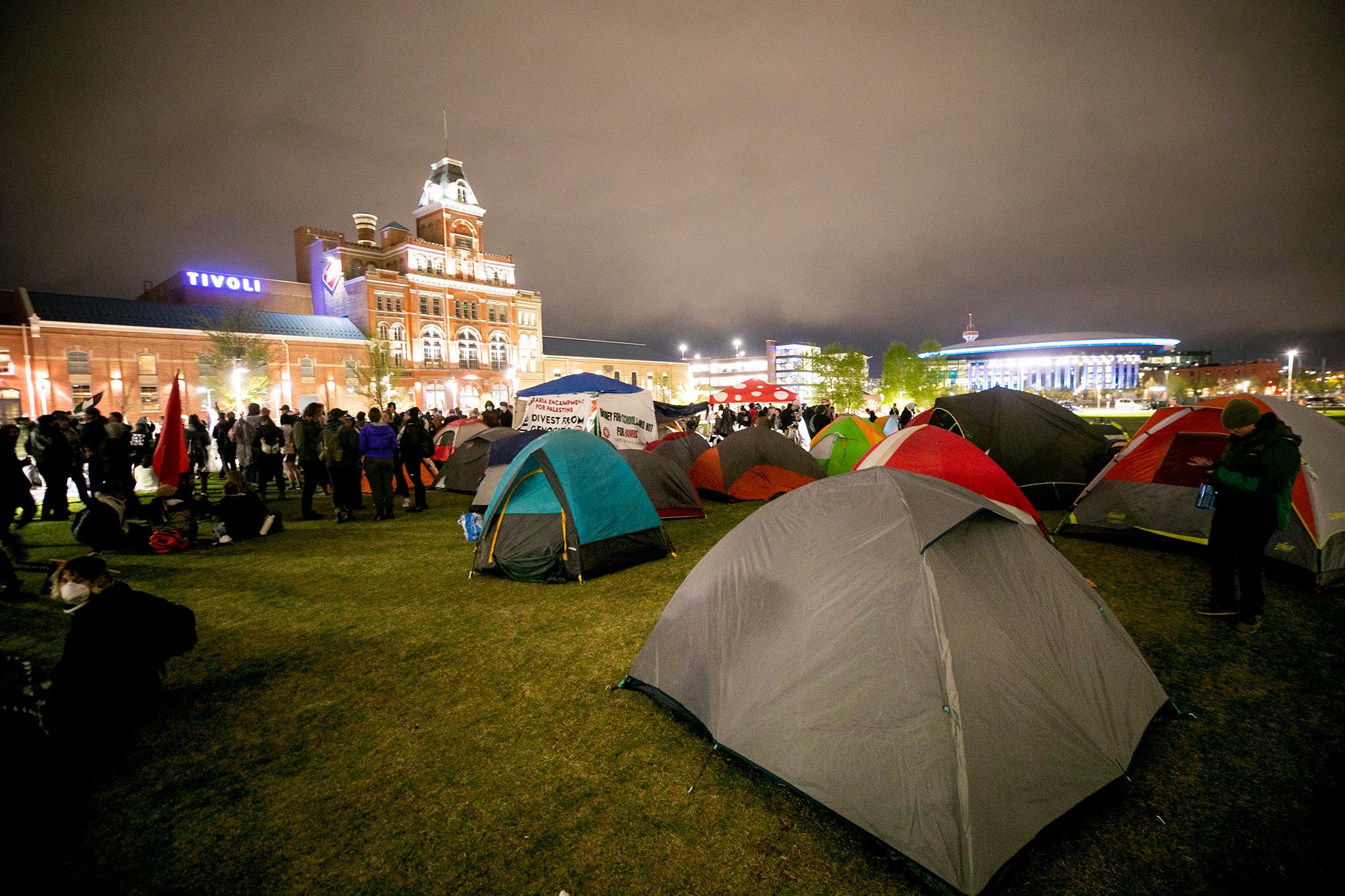People have been talking and reading a lot about Denver Day Works, a $400,000 program through which the city will offer day-long jobs at $12 an hour for homeless people and others in need.
We've heard several questions about how it will all work. Here are the answers we've got so far. Email me about anything I haven't addressed.
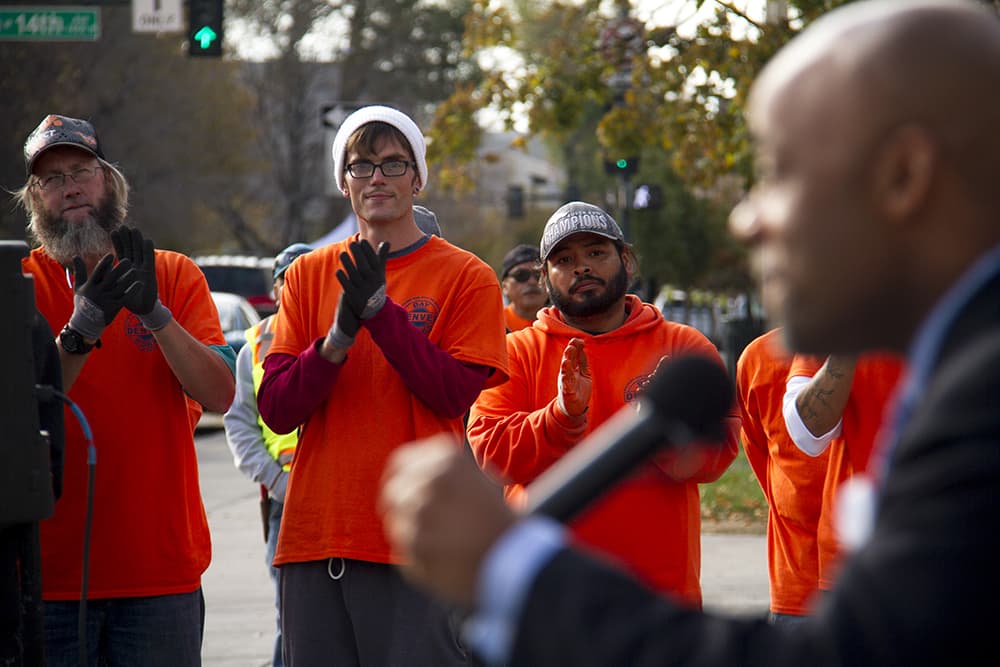
The inspiration:
Albuquerque, N.M. has been paying $9 an hour for shifts doing beautification work with its public works department. The city picks people up in a bus twice a week, employing up to 10 people at a time, Governing reported.
Since June 2015, "There's A Better Way" has hired people for about 1,000 days of work. The city has budgeted about $19,000 for the program next year.
The Albuquerque program was established after the killing by police of James Boyd, a homeless man diagnosed with schizophrenia, which prompted "protests and calls for reform," according to the New York Times.
It was partially "the result of an agreement with the Justice Department which released a blistering review of the use of force by police officers over the years, citing a pattern of violence and mistreatment that disproportionately affected mentally ill people, including many who were living on the streets."
What the participants in Denver Day Works get:
The nonprofit employment agency Bayaud Enterprises will run the program and put participants in jobs with government agencies, including the city, with private employers or at Bayaud itself. Bayaud employs people directly at its shredding service and its mobile laundry truck and at administrative jobs with government agencies.
The jobs start at $12.59 an hour, and they'll be spread out through various city departments, including parks and public works, and potentially at hotels, restaurants and other private-sector jobs.
People will be able to choose between three- and six-hour shifts. For now, work is available two days per week. Lunch is provided.
Want to be the first to know what happens next? Sign up for our newsletter.
Where the money goes:
Denver Day Works will cost the city $400,000 in its first "pilot" year.
Administration
Roughly half, about $197,000, will fund wages and benefits for staffers at Bayaud Enterprises. The program will require a full-time manager, a full-time employment specialist and four part-time positions, according to a contract provided by the city.
The staff will recruit participants, supervise crews, help participants find other resources and services, help them get ready for jobs and provide jobs counseling.
Wages and benefits
The other $203,000 will pay for what the city calls "wages, benefits, and assistance for pilot participants." About $101,000 will be wages directly.
This also will include:
- $11,000 for taxes and other costs
- $31,500 in gift cards to grocery stores, Target, Kmart and Walmart for participants
- $5,000 for food and drink during work hours
- $4,000 in equipment expenses (cell phones and computers, mostly) for program staffers
- $36,342 set aside for "indirect" costs
Is there enough money?
A couple people have pointed out that $101,000 doesn't seem like a lot of money to go around for wages. Great question, and it gets at how the program really works.
The city will be able to stretch that money over all those people because each person will only be able to earn up to $600 (or 50 hours) through Denver Day Works itself. That means $100,000 can cover the maximum payout for roughly 170 people.
However, "the program" is not the limit of the opportunities are available: Once you've hit that cap, you may be able to transfer to longer-term jobs through Bayaud, the city or the private employers. Denver Day Works is meant to be a "stepping stone," city staff stress.
The goal:
The city wants to get at least 300 people interested in the program, and to have at least half of those actually participate. The hope is that 70 people will work more than one day, that 49 of those people will find a permanent job and that 30 people will retain that job for three months or more.
A reaction:
I asked for some perspective from Benjamin Dunning, an advocate for Homeless Out Loud who has experienced homelessness himself.
He likes the idea of the program but cautions against expecting that lots of participants will end up fully employed.
"The hope for these things is not ever realized in that way. But money for work for the day will help some along the way so IT IS A GOOD THING," he wrote in an email.
He stresses that there's a huge difference between this program's "work" and what a real "job" can provide. He worries that only a few people will make it into longer-term jobs, "and it will remain to be seen if those will be seasonal positions (leading to unemployment next fall) or permanent leading to stability and life after homelessness."
He noted that Bayaud had come by the Denver Homeless Out Loud office as it conducted outreach for the program.
"There are very little restrictions to get involved ... which is a good thing," Dunning wrote.
Often, jobs and opportunities can come with requirements such as passing a drug or background test. Denver intends this to be a "no barrier" system. People who are obviously intoxicated may not be allowed to work that day, but long-term sobriety isn't a requirement, at least for the starter work. The idea is to get people not just paid but engaged with the system of services available for people in crisis, according to the city.
"While the program is aimed at providing a same-day work opportunity, what we are ultimately looking to test in this pilot is whether this program is a way to connect with people who are unengaged in other services and help them take steps toward sustained self-sufficiency. We believe that people can achieve their full potential when we help them build a strong foundation to grow from. We believe Denver Day Works will be one part of that foundational work," wrote Julie Smith, a spokesperson for Denver Human services, in an email to Denverite.

